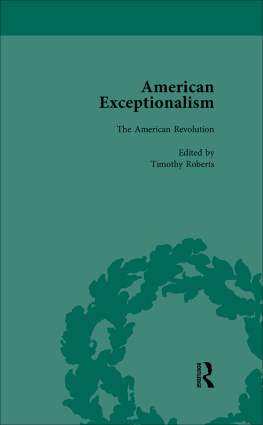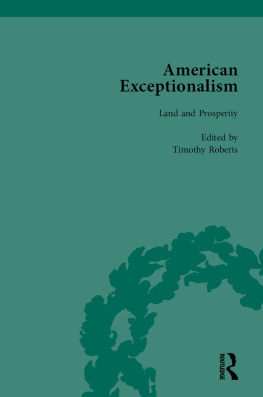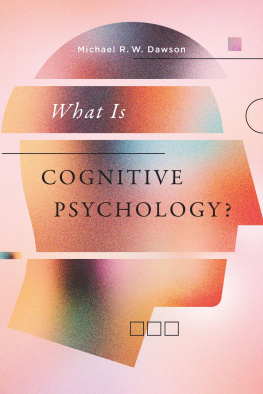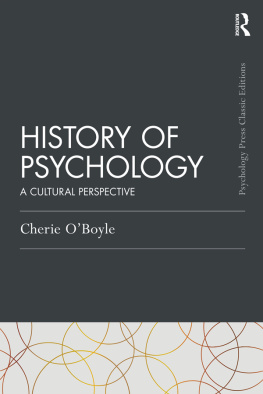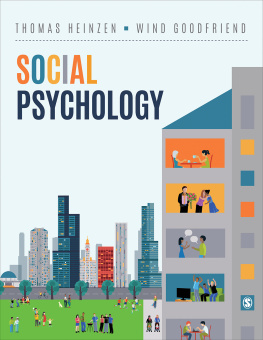First published by Zero Books, 2017
Zero Books is an imprint of John Hunt Publishing Ltd., Laurel House, Station Approach,
Alresford, Hants, SO24 9JH, UK
www.johnhuntpublishing.com
www.zero-books.net
For distributor details and how to order please visit the Ordering section on our website.
Text copyright: Ron Roberts 2016
ISBN: 978 1 78535 595 0
978 1 78535 596 7 (Hardcover)
Library of Congress Control Number: 2016951898
All rights reserved. Except for brief quotations in critical articles or reviews, no part of this book may be reproduced in any manner without prior written permission from the publishers.
The rights of Ron Roberts as author have been asserted in accordance with the Copyright, Designs and Patents Act 1988.
A CIP catalogue record for this book is available from the British Library.
Design: Stuart Davies
Printed and bound by CPI Group (UK) Ltd, Croydon, CR0 4YY, UK
We operate a distinctive and ethical publishing philosophy in all areas of our business, from our global network of authors to production and worldwide distribution.
CONTENTS
And I at odds with the obedient world rejoice
Osip Mandelstam
Science is powerless to solve the enigma of being
Lee Smolin
The voyage of discovery lies not in finding new landscapes, but in having new eyes
Marcel Proust
In memory of Svetlana And to Musa and Yury Goldberg
Preface
Trace the lineage of any significant event, wrote Rebecca Solnit (2013, p.69), and coincidences and strangers appear from beyond the horizon of the calculable. This book owes everything to the improbable and incalculable horizon brought near. An unlikely though fortuitous chain of events can be traced back at least to the late 1990s when I began to research the relationship between debt and health in students. Following the ending of mandatory grants and the introduction of tuition fees I saw the systemic introduction of debt into the pecuniary life of the student population as an opportunity to apply the methodology I had learned, during a prior spell in epidemiology, so as to document and track the effects of financial adversity on young peoples health and well-being. One strand of this work concerned passage through the labyrinth of higher education being enabled through participation in the sex industry. This was a topic which garnered the attention of the press both salubrious and serious. On one such occasion a Russian journalist based in London contacted me to discuss the prospects of running a story on the topic. When we met, she was hoping Id be able to put her in touch with one or two student sex workers to interview face to face. I explained that because of the ethical constraints of confidentiality and anonymity necessarily afforded to all research participants this wouldnt be possible. Disappointed, she wanted to know what other research Id been engaged in that might also grab her interest. At the time I had not long finished a piece of work for colleagues in Bosnia who had asked me to write a critical piece on life in the Western world. Following the break-up of the former Yugoslavia and the horrors of the Bosnian war, many in Bosnia have set their sights on a future refuge from insecurity in membership of the Western institutions of NATO and the European Union. The Bosnians wished to compare my critical vision with their imagined oasis of economic and political safety. I gave the piece Id written to the journalist. A phrase Id used in the article proved to be more than lucky. In discussing the end of Western dreams of an ever-brighter and improving world, I remarked that we had now entered a state of affairs in which we had become nostalgic for the future. This phrase caught my journalist acquaintances eye. She immediately asked me if I had read a book by Svetlana Boym entitled The Future of Nostalgia. Though I had not, her enthusiastic endorsement convinced me to look it up.
My copy of Svetlanas book duly arrived and in the course of the following month or two I set about reading it. I was bowled over by this extraordinary work and took, for me, the unusual step of writing to her (this was in early June 2014) to tell her how much Id enjoyed her book. Described in cyberspace as a text for wandering spirits, it is a rich essay on longing and belonging pursued through the twists and turns of European history, philosophy, aesthetics, politics and art. It defies conventional academic boundaries and most unusually mixes personal narrative and incisive analysis with unrivalled poetic flair. Beautifully written, thought-provoking and moving, I told her that I considered it to be not only the best work on social and collective memory (another one of my research interests) but also full of the humanity I felt my own discipline (psychology) lacked. I was genuinely sorry that my pleasure in reading it had come to an end. Svetlana graciously replied within a week and indicated her own curiosity about my views on the lack of humanity in psychology. I duly responded and in turn we exchanged several warm letters exploring a range of ideas and detailing, on both sides, what Svetlana described as snippets of experience. In due course Svetlana mentioned that she would be passing through London, en route from Vienna where she was making a film. This opened up the prospect of continuing our interdisciplinary transatlantic conversations in person an opportunity which we both took. On July 22nd I headed back to London from an Open University summer school in Brighton Id fortunately been given the afternoon off and we met. It was outside Westminster station on the bridge underneath Thomas Thorneycrofts imposing statue of Boadicea, riding into battle on her two-horse chariot. The next few hours passed by as an extended treat in the intangible present, a treat which was extended still further a few days later as Svetlana was able to change her scheduled flight back to the US and stay in the capital a while longer. On a typical English summer day, alternating between torrential rain and blazing sun, we had a boat ride to Greenwich followed by a lazy and timeless adventure on Londons South Bank, where we cemented a newfound friendship. Over the following year we occasionally Skyped, swapped innumerable text messages and emails and decided we would be friends for life.
In Eduardo Galeanos Book of Embraces there is a brief allegorical tale. In this we are told the world is a heap of people, a sea of tiny flames and each of these shines with his or her own light. No two flames are alike. There are big flames and little flames, flames of every colour. Some peoples flames are so still they dont even flicker in the wind, while others have wild flames that fill the air with sparks. Some foolish flames neither burn nor shed light, but others blaze with life so fiercely that you cant look at them without blinking and if you approach, you shine in fire. Svetlanas flame blazed fiercely, with an elegance and assuredness firmly rooted to the earth. It was difficult not to feel ones own mind on fire in conversation with her and not to have loved her would have been like trying to defy gravity.
From one of our chats begun in Greenwich Park over a cup of tea and a cake, and continued beneath the bright night lights on the South Bank a few hours later emerged the idea that I could perhaps pursue my desire for a discipline of the human condition by exploring her concept of the off-modern in and metaphorically. Sadly, with her untimely passing, she will no longer reach them, nor will they bend down to lend assistance. There will be no more next times, and the world for all its joys will remain a poorer and less colourful place without her. Galeanos simple tale is instructive. In the midst of the unseemly chaos and inhumanity that surrounds us we must not forget that we can make a difference that fire is contagious and that we can help light the way for one another.


